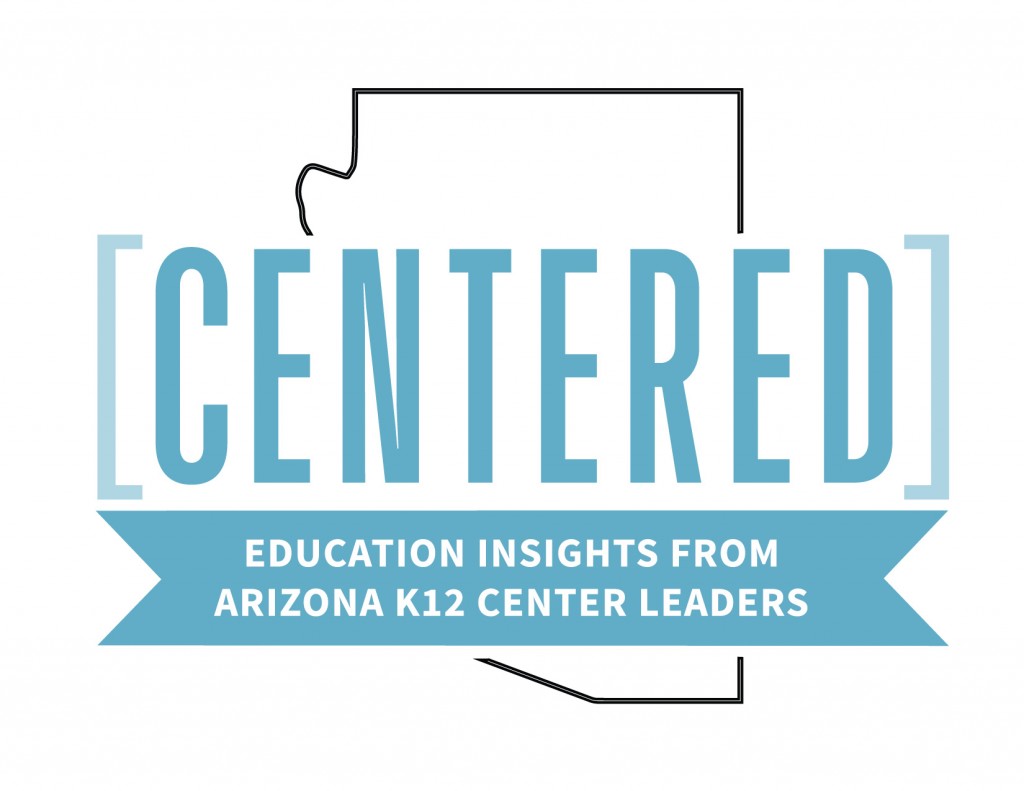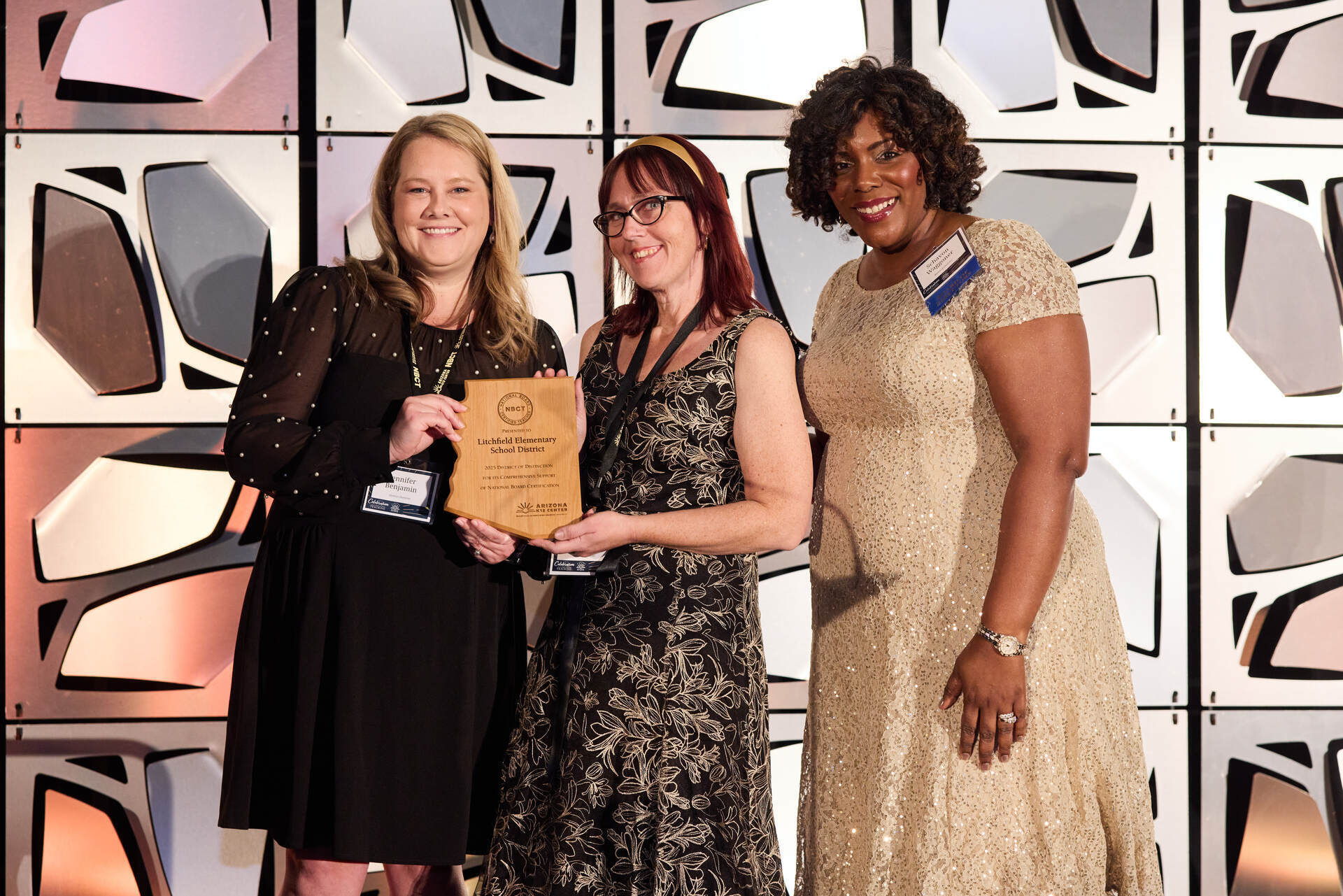March 16, 2018
The Slippery Salary Slope
Centered: The Arizona K12 Center’s Executive Director, Dr. Kathy Wiebke, offers her education insights in this monthly column.
In 1981, my brother-in-law graduated from law school and I received my undergraduate degree in elementary education. We both went to Arizona State University and participated in the same graduation ceremony. I remember standing next to him as photographs were taken. Me, the teacher. Him, the lawyer. Two people out to change the world.
We both got jobs right away, not necessarily in the areas we wanted, but it didn’t matter. He was a lawyer, I was a teacher. I remember my first contract was for $10,500. It was the most I had ever made in my life. I knew I wasn’t going to be rich, but I was pursuing a career I had wanted since I was 7 years old.
At the time, I remember talking to my brother-in-law and discovering that while he was making more than me, it was not by an astronomical sum. But, there was one huge difference. My brother-in-law got to go and pick out a new car. Yes, the firm paid for the car and my brother-in-law could be seen around town in this beautiful, bright red, sporty Camaro. I was still driving my parents’ car, but I was a teacher and doing the job I loved.
Needless to say, as the years passed, the income inequity became more significant. In fact, after that initial conversation, I don’t think we ever spoke about our salaries again. However, as time marched on, I could easily see our salaries began to match our chosen careers — the income gap between us significantly widened.
I didn’t complain about my salary, but I also had a second job well into my career at a local department store. I also had the help of my parents for more years than I could count.
In the early years, I could count on a small raise. Not much, but it was something. I always believed my district and union did the best they could to fairly compensate all of its employees with the money provided by the state.
I left teaching in 2001 to take a job as a principal and left the public-school system in its entirety in 2003. From there, I became Deputy Associate Superintendent at the Arizona Department of Education. In 2005, I became the Executive Director of the Arizona K12 Center at Northern Arizona University and have been here ever since.
Humbly, I consider myself somewhat an expert on the life of a teacher and state employee.
When one enters public service, you do it for the greater good. You recognize you will never have the salary of those in the private sector, but at the same time, you have the reasonable expectation that you can live a moderate lifestyle, sock a little money away for a rainy day, put food on the table, a roof over your head, and maybe, just maybe, take the occasional family vacation.
When I came to the Arizona K12 Center, I soon realized just how stagnant teachers’ salaries were in the state of Arizona. I rediscovered how little teachers were making. I remember a talented special education teacher who finally gave up and moved back east. After 11 years of teaching and a master’s degree, she was only making $38,000. Her first contract after moving was $63,000. And, forget the argument that the cost of living is so much higher. She was spending no more for rent than when she was in Arizona.
Another teacher with a master’s degree, National Board Certification, and 14 years of teaching experience was making $38,250. Her new salary was $62,000. And, once again, a commensurate cost of living. She said that when her furnace “hit the skids,” she didn’t panic because she was able to build a decent savings account, which was something she never could do in Arizona.
Want to guess the income of a husband and wife team, both teachers, with three master’s degrees and a combined 52 years of experience between them? One is National Board Certified, yet their combined take-home pay for one year is $57,600. Let the math sink in on that one.
I remember talking with one of these teachers about why she was leaving Arizona after all these years. What was it that finally made her pick up and leave? She said that she was almost 40 and working as hard to make ends meet as the day after she graduated from college. I remember thinking to myself, teaching as a career shouldn’t be so hard, all the while knowing I would never return to the classroom because I could never live on the salary I left behind.
I am not cherry-picking these stories. They are examples of great teachers from great districts, and they’re not alone. These are people who gave it their all and could no longer make ends meet.
This summer, there was much press about raises given to the staff at the Governor’s Office. I don’t begrudge these people and their raises, as I suspect they are outstanding employees who were well-deserving. But as I read the news, I wondered, “Aren’t Arizona’s educators equally deserving?”
The average raise in that office was 11 percent. I am not sure when Arizona teachers have received that significant of a raise — many have been “frozen” on the salary schedule for years.
Arizona has endured decades of budget cuts. This austerity has created a significant teacher shortage that has no end in sight with teachers leaving the profession. In December 2017, the Arizona School Personnel Administrators Association indicated 63 percent of teaching positions are vacant or filled by teachers that do not meet standard teaching requirements. In the 172 districts surveyed, 866 teachers have resigned or abandoned their teacher position since the start of the school year.
Teachers are highly educated individuals. Many of them come with years of experience accompanied with a set of skills, knowledge, and dispositions that make learning come alive for children of all ages. They are dedicated to their craft and the students they teach.
I wonder how dedicated we are to them as professionals and the children they teach.











